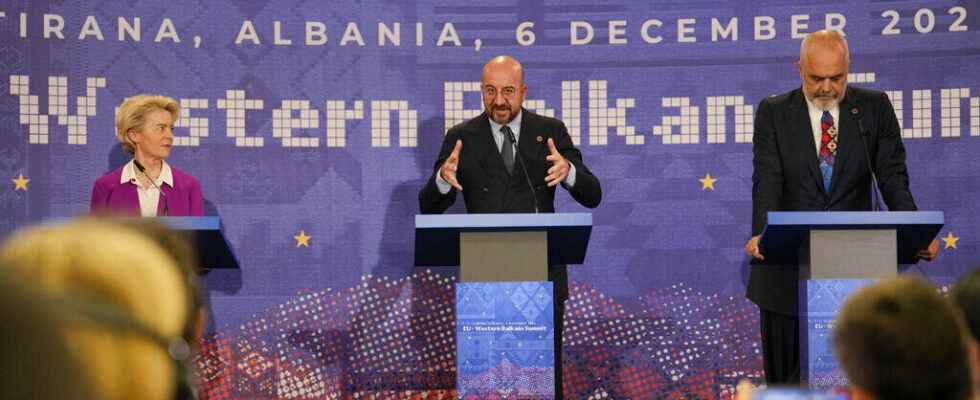This new annual summit between the 27 and the Western Balkans was symbolic: in the midst of the war in Ukraine, it was a question of strengthening ties, stretched by too many broken promises. The EU therefore pulled out the checkbook and recalled that integration was the only option guaranteeing democracy. But nothing has really progressed.
Croatia, which is delighted to enter, Romania and Bulgaria, which are fuming at being recalibrated again. Thursday, December 8, Austria and the Netherlands again opposed their refusal to Bucharest and Sofia, pointing out the migratory risk. For reasons above all linked to their internal politics. NGOs, they denounce the “dangerous precedent” of the entry of Croatia.
Romania had been waiting since 2011 for the green light to join the Schengen area. But for eleven years, it has been a soap opera with twists and turns, punctuated by fluctuating refusals. Behind the “technical” reasons officially invoked by recalcitrant states, the unofficial reasons are largely political. To analyse.
Russian oil embargo
Greek shipowners do not take off against the European embargo imposed since December 5 on crude from Russia. They who control nearly 40% of oil tankers around the world fear losing market share. But are they really losers?
Lukoïl enjoys a quasi-monopoly on the import and distribution of oil in Bulgaria. The Russian hydrocarbon giant takes the opportunity to put pressure on Sofia and has just obtained a derogation to circumvent the European embargo on black gold from Russia. Explanations.
In Serbia, pro-Russians and far-right networks
In Serbia, it is a troublemaker of the regime of Aleksandar Vučić who was appointed head of the secret services. Openly pro-Russian, Aleksandar Vulin is not close to provocation or scandal. His appointment does not bode well for civil society and the few independent media.
What are the links between the Serbian far-right networks and the Kremlin? The head of the Narodne Patrol recently bragged about his invitation to the newly opened Wagner Center in St. Petersburg. A visit in search of “new support” in the event of an armed conflict between Serbia and Kosovo…
While more than 99,000 exiles crossed Serbia in 2022, it registers only 272 asylum applications. A tiny number, symptom of a flawed system that deliberately seeks to discourage applicants. Reportage.
Football: Yugoslavia in Qatar
As in 2018, Croatia and Serbia are the only two nations resulting from the implosion of Yugoslavia to participate in the World Cup. But no less than ten players from the former federation have set foot on the grounds of Qatar with other selections. Workforce review.
